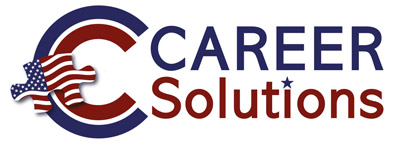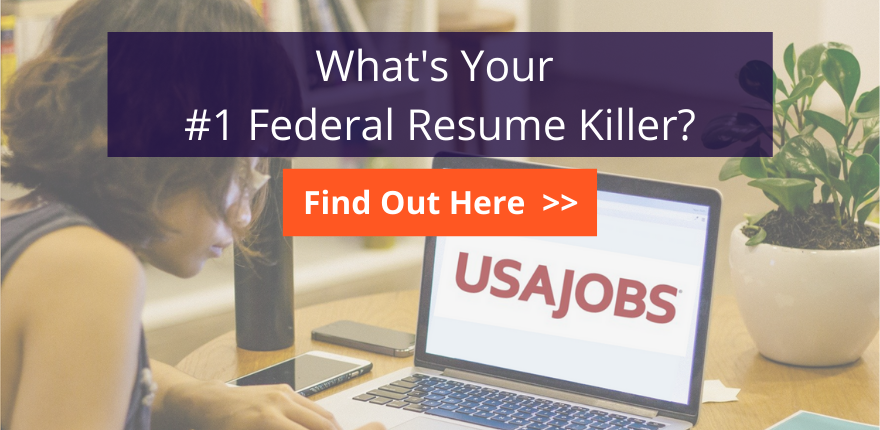Many job announcements on USAJOBS state: Optional Cover Letter. I’ve asked my federal clients if they have ever submitted one with their application and most all of them said, “No. It was an option on the job announcement so I didn’t submit one.”

It’s true, it is optional, but is NOT submitting one the best strategy?
Has your career been so perfect that nothing needs further explanation in a cover letter? (Kudos, if the answer is yes!)
So, what if the cover letter could give you the edge over someone who didn’t submit a cover letter?
And, what if you could showcase your personality and your soft skills to stand out above your competition?
Additionally, what if you could demonstrate your writing abilities and skills using a cover letter?
What if…
…and there could be many reasons to include a cover letter with your application.
Yes, it’s going to require a little more time and effort. But if it’s done right, it could really pay off.
One of my clients posted in our Facebook group: “If a cover letter is optional, in what situation should I devote time to one?”
Another client asked, “What is the purpose of the cover letter?”
These are great questions.
First, the purpose of the cover letter is to introduce the résumé. It’s the headliner for the star of the show.
In the private sector, the cover letter is most often the first impression given by a job applicant. In the federal hiring process, it isn’t always the cover letter that is read first. However, if you write one and upload it into the proper location, it will be seen.
MAGNETIC TIP: Match the format of your cover letter to your résumé and don’t be hesitant to add some conservative colors and line enhancements to make it visually appealing.
What is the difference between a Federal Cover Letter vs Private Sector Cover Letter?
Nothing major, but I’ll address some nuances to each one. Both cover letters should follow a similar format.
1. Applicant Information
For private sector, include your name, address, email, daytime phone number, and LinkedIn URL.

For a federal cover letter, you should add an evening phone number if the job announcement asks for both day and evening phone numbers. If you use a mobile for both, list the number and write “Day/Evening” before or after it. And, this is a great place to list your citizenship.

2. Date
I think this one is self-explanatory. However, for a federal application, it’s fine to use the closing date on the job announcement—unless the close date is one year away. In that case, use the date you submit your application.
3. Inside Address
The inside address includes the contact’s name on the job announcement which is typically a representative from Human Resources. Then, the company, address, city, state, and zip code.
Sometimes in the larger private sector companies, you won’t find the name of the Human Resources representative on the job announcements, e.g., on Indeed.
Here’s an example for private sector:
Hiring Team
Microsoft
1 Microsoft Way
Redmond, WA 98052
For the inside address on a federal cover letter, it should include the contact’s name on the job announcement which is typically the representative from Human Resources. Then, the agency, address, city, state, and zip code.
Here’s an example for federal:
Mr. John Parker
Department of Justice
Executive Resources
145 North Street NE
Washington, DC 20002
4. Subject Line
For both private sector and Federal Government, you should include the title of the job announcement and the job announcement number. This is really helpful to Human Resources.
Here’s an example for private sector:
LOGISTICS SPECIALIST – Winston-Salem, North Carolina
Here’s an example for federal:
LOGISTICS MANAGEMENT SPECIALIST – Job Announcement Number NCFL20600046998S
5. Salutation
For both federal and private sector, the following is most appropriate:
Dear Mr. Crowson:
For business writing, use a colon behind the name. If you are writing to the “Hiring Team,” you would write:
Dear Hiring Team:
6. Paragraph 1 – The Introduction
Thank them for the opportunity and introduce why you are applying to the position. Then introduce your résumé. Remember, the purpose of the cover letter is to introduce the résumé. For example:
Attached is my résumé where you will see that my qualifications align with every requirement on your job announcement.
7. Paragraph 2 – The Body
This is where you can reference your resume and summarize your knowledge, skills, and abilities. This section could actually be 3-4 lines of text and 2-4 short bullet points.
8. Paragraph 3 – The Conclusion
This paragraph is super important to get right. This is where you reiterate what you can do for them and when they invite you to the interview, you can demonstrate your knowledge and expertise further. You don’t need to waste cover letter real estate by adding your email and phone number again. Instead, tell them what they can expect from you and thank them for their time and consideration.
9. Closing
In my opinion, a good way to close is to say “Sincerely” then your name:
Sincerely,
Your Name
Your Name
Sincerely is more of a neutral gesture, whereas “Very truly yours” is…not so much.
It is acceptable to type your name using a different font because it’s generally submitted electronically.
10. Attachment
Remember, in Paragraph 1, you introduced the résumé. Be sure to reference the attachment at the bottom of your letter—your résumé! For example:
Attachment:
As Stated
Or
Attachment:
Résumé
When you are applying for a federal job, it’s important to address your cover letter and federal resume to the Six Audiences™ so you can land interviews that lead to lucrative job offers!
MAGNETIC TIP: Double-check your cover letter with Grammarly to ensure it sounds friendly and professional. You can also ask our eagle-eyed proofreading team to help. It’s very important to ensure there are no grammar, spelling, punctuation, or formatting errors and that it is aligned to the job announcement.
Do you have any questions about how to write a cover letter that makes the Six Audiences™ want to ‘turn the page’ to your résumé? We’d love to hear from you!
- China-Linked Fake Job Scams Target U.S. Officials - September 17, 2025
- Why I Invest in LinkedIn Training: A Power Tool for Career Growth - August 10, 2025
- Is AI Causing Job Loss? What the Data Really Says and What You Can Do About It - July 25, 2025



